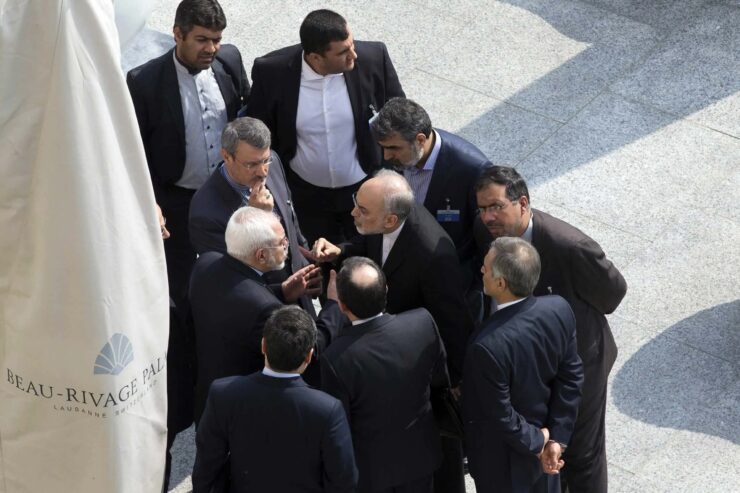
Tel Aviv: The Gulf and Middle East region are about to go into an accelerated nuclear race as the chances of signing a new nuclear deal with Iran are waning.
President’s Biden change of attitude towards the IRCG, has an immediate effect on the possibility of signing a new nuclear deal with Iran. In this situation Israeli defence sources say, it looks that Iran will accelerate its nuclear program.
Last week, President Biden changed his prior position and said that members of the Islamic Revolutionary Guard Corps Quds Force, part of the IRGC are terrorists.
“The President shares the Chairman’s view that IRGC Quds Forces are terrorists, and beyond that we aren’t going to comment on any of the topics in the nuclear talks,” said State Department Principal Deputy Spokesperson Jalina Porter in a press briefing.
The Iranians are showing a much tougher position in response to President’s Biden position.
Acceding to the website of the Middle East Media Research Institute on March 10 speech to members of the Assembly of Experts, Iranian Supreme Leader Ali Khamenei said that Iran must not compromise on its positions in the negotiations.
He confirmed, for the first time, that Iran’s expansion in the Middle East, which he called “a form of military power,” is Iran’s “strategic depth,” and defined Iran’s nuclear program – “the scientific aspect” – and Iran’s expansion in the region as the “arms” of Iran’s “power” that must not be relinquished in the talks with the US on the lifting of sanctions.
Thus, Khamenei in effect stated that Iran’s Islamic Revolutionary Guard Corps (IRGC) must not be hobbled in the region, contradicting the US demand in the negotiations that Iran commit publicly to refrain from escalating events in the Middle East.
This situation has again spurred the effort of Gulf States to achieve military nuclear capability.
Abdul Khalek Abdullah Al, a former adviser to the leaders of Abu Dhabi, called on the Gulf states to possess a nuclear bomb to deal with Iranian threats.
Abdul-Khalek Abdullah said in a Twitter tweet: “Iran will hold a nuclear bomb, with or without an agreement with the international community.” He added that “the way to deal with such is to develop a joint nuclear program of the Gulf States with the aim of a nuclear bomb of the Gulf states on every Iranian nuclear bomb.”
According to a paper prepared by Yoel Guzansky and Galia Lindenstaruss from the Israel Institute for National Security Studies (INSS), many decision makers and analysts in Israel and around the world contend that Iran’s attainment of a military nuclear capability will increase nuclear weapons proliferation in the Middle East and create a multi-polar nuclear system in the region.
“Saudi Arabia, Turkey and Egypt are considered the main candidates to go nuclear in order to balance Iran’s nuclear power. This article will test this argument primarily from the perspective of the motivations and capabilities that may spur these countries to develop a nuclear arms infrastructure in the long term (perhaps beginning with the development of a civilian nuclear program), or to attempt to obtain an off-the-shelf nuclear deterrent in the short term.”
The researchers add that, if Saudi Arabia, Turkey and Egypt join the nuclear arms race, even if the process is ultimately not completed, other countries in the region will feel threatened.
“For Saudi Arabia, the American nuclear umbrella seemed preferable over the years to an independent effort to obtain a nuclear weapons. Nevertheless, the consequences of nuclear weapons in the hands of Iran for Saudi Arabia’s security and the rising doubt in Riyadh regarding the willingness of the US to continue providing it with a defence guarantee are likely to tip the balance of Saudi considerations.”
Israeli defence sources told Raksha Anirveda that there are “many indications” that some Gulf states are doing initial steps to evaluate what is the best way for them to acquire military nuclear power.
Dr Mordechai Kedar, an Israel senior expert on Middle East and Gulf issues said that in the current situation, it looks that some Gulf states mainly Saudi Arabia and Turkey are considering military nuclear programs. “These countries fully understand the threat posed by Iran with a bomb and want to balance the situation.”















